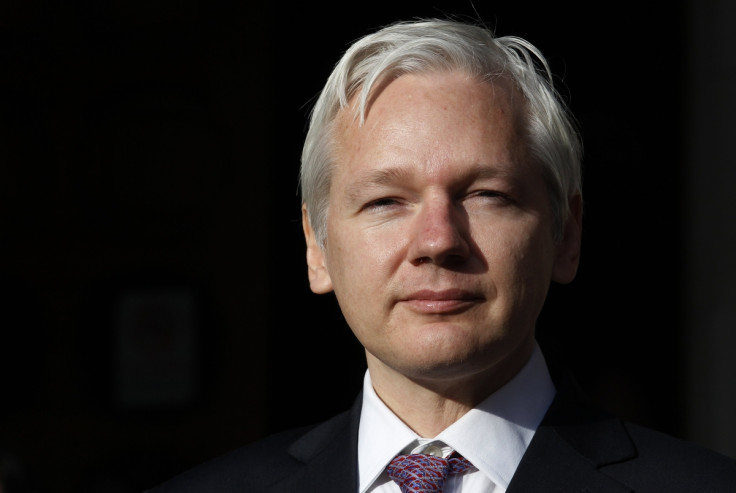Julian Assange Arrest Warrant For Rape Allegations Upheld

A judge in Sweden has upheld an arrest warrant for the Wikileaks founder Julian Assange.
At a hearing in Stockholm, Judge Lena Egelin upheld the arrest warrant having heard arguments from both sides.
"The court believes there is probable cause for the crimes of which he is accused," Judge Egelin said in a statement to the court. "He has chosen himself to go into the embassy and the court does not believe that the deprivation of his liberty is such as to be disproportionate [to the allegations]."
Assange who was not at the hearing - having not left the Ecuadorian embassy in London for over two years - believes this hearing was just one part of his on-going legal battle.
His lawyers said they would appeal the decision, with one of them, Tholmas Olsson, telling the Guardian "We are confident and have strong legal arguments to get the decision overruled in the court of appeal. It took two hours today for the judge to rule, so it must have been a difficult decision."
The hearing was held to decide on an arrest warrant first issued by the Swedish authorities in November 2010 over allegations of rape and sexual molestation made against Assange by two unnamed women during a visit by the Wikileaks founder to the country in August 2010.
Voluntary
In December 2010 Assange, by that time in the UK, voluntarily presented himself at a police station to answer the warrant. Assange was held in Wandsworth prison for 10 days before being granted bail and released under house arrest.
Assange spent the next 550 days under house arrest while his lawyers fought the extradition through the UK courts, culminating on 12 June when Assange lost his final appeal and was given two weeks to seek an injunction from the European Court of Human Rights.
Instead, Assange sought asylum in the Ecuadorian embassy in London and he has remained in the embassy ever since.
Prosecutor delay
One of the issues which Assange's lawyer Per Samuelsson raised at the hearing in Stockholm was the fact the Swedish prosecutor has not travelled to London to question Assange about the allegations. Assange's lawyers argued the delay the questioning breaks the requirement of urgency in the case, while the European warrant for his arrest is "contrary to necessity and proportionality".
The judge was also shown a video by Assange's lawyers (below) as evidence of how much danger his life would be in if he was to leave the Ecuadorian embassy.
Charges likely to be brought
The prosecution also laid out its reasons why the arrest warrant should remain in place. Among the arguments was the fact prosecutors say they made "repeated" attempts to contact Assange to conduct interviews about the allegations.
They added that Assange was given all relevant evidence in the case but that they were not required to hand over everything.
Finally, the prosecution told the hearing that while Assange has never been charged over these allegations, it is likely that charges will be brought.
Even if the ruling had gone in favour of Assange, it does not mean the WikiLeaks founder will be leaving the Ecuadorian embassy where he has been holed up for over two years.
In June Assange told reporters: "I still have the larger problem, which is that of the United States and its pending prosecution, and perhaps extradition warrant."
© Copyright IBTimes 2025. All rights reserved.






















